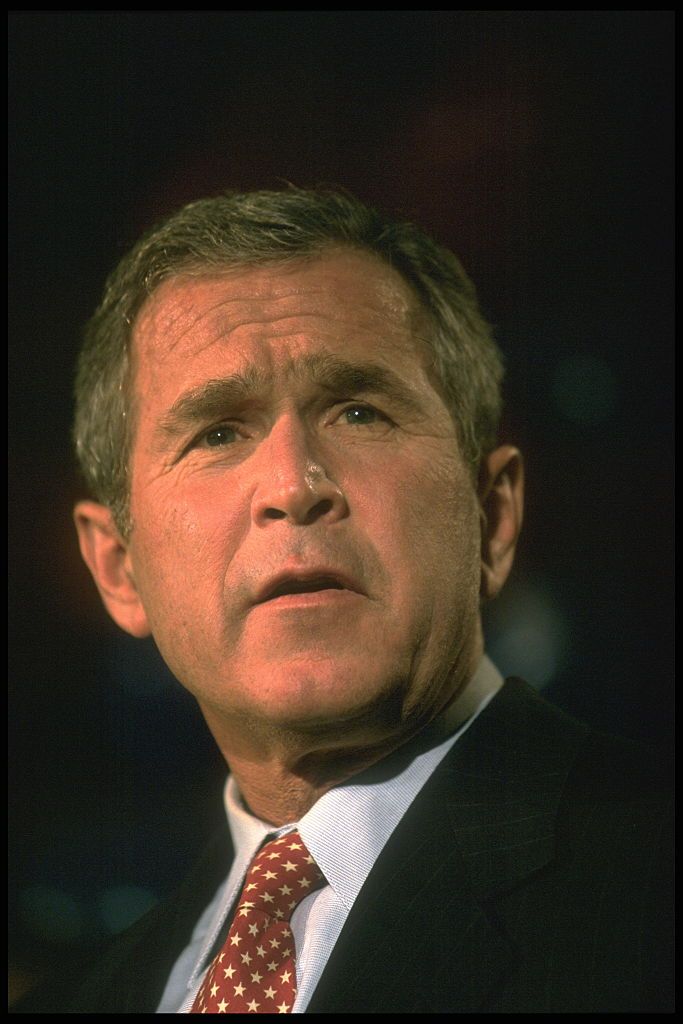
George W. Bush, the 43rd President of the United States, served from 2001 to 2009. Born on July 6, 1946, in New Haven, Connecticut, Bush was the son of President George H.W. Bush and Barbara Bush. He attended Yale University and Harvard Business School before going into business and later serving as the Governor of Texas. Bush is perhaps most known for his response to the 9/11 terrorist attacks, including leading the United States into the wars in Afghanistan and Iraq. He also signed the No Child Left Behind Act and implemented significant tax cuts during his presidency. Criticism of his administration includes his handling of Hurricane Katrina and the 2008 financial crisis. Bush’s approval ratings saw a significant decline during his second term, contributing to the election of Barack Obama as his successor. After leaving office, Bush has focused on humanitarian efforts through the George W. Bush Presidential Center and his work with veterans. Despite both praise and criticism, George W. Bush’s presidency remains a significant part of recent American history.
Early Life and Career
George W. Bush was born on July 6, 1946, in New Haven, Connecticut, into a political family. His father, George H. W. Bush, went on to become the 41st President of the United States. George W. Bush attended prestigious schools such as Yale University and Harvard Business School, where he obtained his MBA. Before entering politics, he worked in the oil industry and also owned a baseball team. In 1994, Bush was elected as the Governor of Texas, where he served for six years before running for President.
Presidency and Legacy
In 2000, George W. Bush narrowly won the presidential election against Al Gore, after a controversial recount in Florida. During his two terms in office, Bush faced major challenges such as the September 11 attacks in 2001, the wars in Afghanistan and Iraq, and the financial crisis of 2008. He implemented policies such as the No Child Left Behind Act, tax cuts, and the creation of the Department of Homeland Security. Despite criticism for his handling of the Iraq War and Hurricane Katrina, Bush left office with a mixed legacy.
Throughout his retirement, George W. Bush has focused on humanitarian work, particularly through his foundation, the George W. Bush Presidential Center. He has also become known for his paintings and artwork, with a focus on portraits of veterans. Bush has largely stayed out of politics since leaving the White House, but has occasionally spoken out on issues such as immigration reform and unity in the United States. Despite his critics, Bush remains a polarizing figure in American history, with his presidency continuing to shape political discourse in the country.
 Top famous
Top famous
